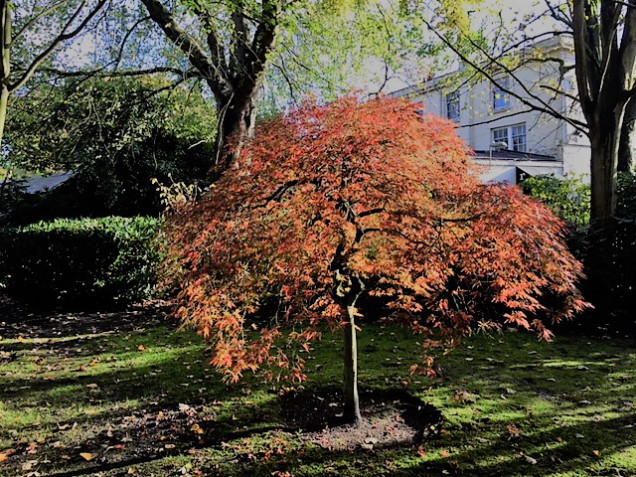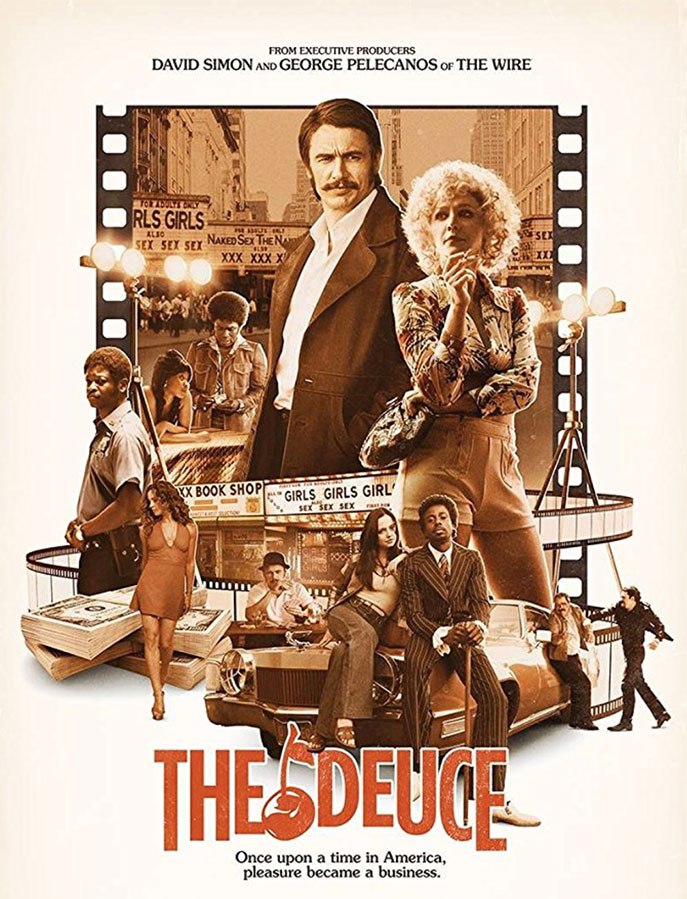 Acer near The Reader Cafe, Calderstones Park, 25 October
Acer near The Reader Cafe, Calderstones Park, 25 October
I’ve been reading Matthew Arnold’s poem, ‘The Buried Life’ here for a the past while. Find the whole poem here.
I’m at this point:And many a man in his own breast then delves, But deep enough, alas! none ever mines. And we have been on many thousand lines, And we have shown, on each, spirit and power; But hardly have we, for one little hour, Been on our own line, have we been ourselves— Hardly had skill to utter one of all The nameless feelings that course through our breast, But they course on for ever unexpress’d. And long we try in vain to speak and act Our hidden self, and what we say and do Is eloquent, is well—but ‘t is not true!
Is this about being or about saying? Is it about knowing or about language? Or is it both? First two lines – clear: we’ve felt something, we’ve been moved, and we look inside, a common experience, ‘many a man in his own breast then delves’, but we can’t pinpoint it, we can’t get to it; ‘But deep enough, alas! none ever mines’.
Had that feeling? Yes. Let’s go on then.
And we have been on many thousand lines, And we have shown, on each, spirit and power; But hardly have we, for one little hour, Been on our own line, have we been ourselves— Hardly had skill to utter one of all The nameless feelings that course through our breast, But they course on for ever unexpress’d.
What are these ‘many thousand lines’? I think of the army – of the line – the front line, advancing. And I think of lines of enquiry. Does it mean ‘places where we have to be?’ Many thousand – so we’re doing it all the time. For me those lines are to do with showing up, with being ourselves in practical life. Such experiences are testing, and we’ve done well, ‘we have shown, on each, spirit and power’. I’m feeling happy as I read these lines, they carry me, and make me feel ‘spirit and power’ is possible, is available, and I might have it. I certainly want those things as I hold my line. Then I come to the but.
But hardly have we, for one little hour, Been on our own line, have we been ourselves— Hardly had skill to utter one of all The nameless feelings that course through our breast, But they course on for ever unexpress’d.
There are acres of ordinary life, times on the lines when we’re doing well and feel pretty good about it , showing ‘spirit and power’, but Matthew Arnold shifts gear or turns to face another dimension, looking away from this ordinary run of life to something, somewhere else. Even while we are doing fine in the outward-facing department we have not ‘been on our own line’ (notice this one is singular, whereas the outward facing ones are plural – what difference does that make?) and we’ve hardly been on it for ‘one little hour’.
I don’t think it takes away the ‘spirit and power’, think they are still there, they are just somewhere else. However much work you do in the outward facing dimension, and however well you do it, the inward dimension is there and we’re not on it.
Let’s read the section again:
And many a man in his own breast then delves, But deep enough, alas! none ever mines. And we have been on many thousand lines, And we have shown, on each, spirit and power; But hardly have we, for one little hour, Been on our own line, have we been ourselves— Hardly had skill to utter one of all The nameless feelings that course through our breast, But they course on for ever unexpress’d. And long we try in vain to speak and act Our hidden self, and what we say and do Is eloquent, is well—but ‘t is not true!
The connection between being and speaking is vital for Matthew Arnold – the uttering of all the nameless feelings that ‘course through our breast’ seems vital to his sense of deepest self. There’s a gap between the reality of what is felt and the ability of language to express it. That’s a tough gap for someone to face in poetry, the art of language. Can’t we ever get at our deepest selves ?
For someone with God in their life, this problem might be alleviated by prayer. For mystics and meditators, there is the one-with-everything state, described by Doris Lessing in Martha Quest, and found in religious writing everywhere, from every time and in various faiths. Look again at Doris Lessing’s description:
There was certainly a definite point at which the thing began. It was not; then it was suddenly inescapable, and nothing could have frightened it away. There was a slow integration, during which she, and the little animals, and the moving grasses, and the sunwarmed trees, and the slopes of the silvery mealies, and the great dome of blue light overhead, and the stones of the earth under her feet, became one, shuddering together in a dissolution of dancing atoms. She felt the rivers under the ground forcing themselves painfully along her veins, swelling them out in an unbearable pressure; her flesh was the earth, and suffered growth like a ferment; and her eyes stared, fixed like the eye of the sun. . . During that space of time (which was timeless) she understood quite finally her smallness, the unimportance of humanity. In her ears was an inchoate grinding, the great wheels of movement, and it was inhuman, like the blundering rocking movement of a bullock cart; and no part of that sound was Martha’s voice. Yet she was part of it, reluctantly allowed to participate, though on terms – but what terms? For that moment while time and space (but these are words, and if she understood anything it was that words, here, were like the sound of baby crying in a whirlwind) kneaded her flesh, she knew futility; that is, what was futile was her own idea of herself and her place in the chaos of matter. What was demanded of her was that she should accept something quite different; it was as if something new was demanding conception, with her flesh as host; as if it were a necessity, which she must bring herself to accept, that she should allow herself to dissolve and be formed by that necessity. But it did not last; the force desisted, and left her standing on the road, already trying to reach out after ‘the moment’ so that she might retain its message from the wasting and creating chaos of darkness. Already the thing was sliding backwards, becoming a whole in her mind, instead of a process; the memory was changing, so that it was with nostalgia that she longed ‘to try again’.
There had been a challenge that she had refused. But the wave of nostalgia made her angry. She knew it to be a falsity; for it was a longing for something that had never existed, an ‘ecstasy’ in short. There had been no ecstasy, only a difficult knowledge. It was as if a beetle had sung. There should be a new word for illumination.
Martha Quest by Doris Lessing
I notice the failure of language here:
During that space of time (which was timeless) she understood quite finally her smallness, the unimportance of humanity. In her ears was an inchoate grinding, the great wheels of movement, and it was inhuman, like the blundering rocking movement of a bullock cart; and no part of that sound was Martha’s voice. Yet she was part of it, reluctantly allowed to participate, though on terms – but what terms? For that moment while time and space (but these are words, and if she understood anything it was that words, here, were like the sound of baby crying in a whirlwind) kneaded her flesh, she knew futility; that is, what was futile was her own idea of herself and her place in the chaos of matter.
I’m not sure that Matthew Arnold and Doris Lessing are describing the same experience but there are elements which seem to match. It’s as if Doris has gone much further – she has allowed the daytime self to dissolve, whereas it feels at the moment as Matthew Arnold is standing on the brink, saying, I need my language!
There’s an interesting thought here, that I’m not in the right time and space and mind-set to have – about what language is for humans. In David Bohm’s book Wholeness and the Implicate Order he speaks of language as a key part of the breaking up of the flow of experience. Naming things breaks them up into units. This is helpful and then not helpful.
Bohm writes;
Indeed to some extent, it has always been both necessary and proper for man, in his thinking, to divide things up, and to separate them, so as to reduce his problems to manageable proportions; for evidently, if in our practical technical work we tried to deal with the whole of reality at once, we would be swamped. So, in certain ways, the creation of special subjects of study and the division of labour was an important step forward. Even earlier, man’s first realization that he was not identical with nature was a crucial step, because it made possible a kind of autonomy in his thinking, which allowed him to go beyond the immediately given limits of nature, first in his imagination and ultimately in his practical work.
These are the many thousands of lines we’ve been on – doing our practical and technical work – and this mainly where we are, but Matthew Arnold knows there is another way of seeing and feeling it all, and the two do not sit easily together. Bohm was a leading theoretical physicist and was profoundly influenced by Einstein’s work, but he was also a mystic who made contact with the Dalai Lama. Quantum physics provides a theoretical framework which accounts for much of the long-established human tradition of mysticism. Matthew Arnold lived in a Newtonian Universe of lines we were on or not on: Bohm was lucky to know that the same point may be a wave or a particle…
But I should go back to the poem:
And many a man in his own breast then delves, But deep enough, alas! none ever mines. And we have been on many thousand lines, And we have shown, on each, spirit and power; But hardly have we, for one little hour, Been on our own line, have we been ourselves— Hardly had skill to utter one of all The nameless feelings that course through our breast, But they course on for ever unexpress’d. And long we try in vain to speak and act Our hidden self, and what we say and do Is eloquent, is well—but ‘t is not true!
Those feelings we can’t get at or name are there, are present, though unexpressed and thus giving rise to the frustration Matthew Arnold feels:
And long we try in vain to speak and act Our hidden self, and what we say and do Is eloquent, is well—but ‘t is not true!
That’s it for today, time’s up. All this makes me think I want to reread The Cloud of Unknowing. And I want more time to think about it.
Share this:





